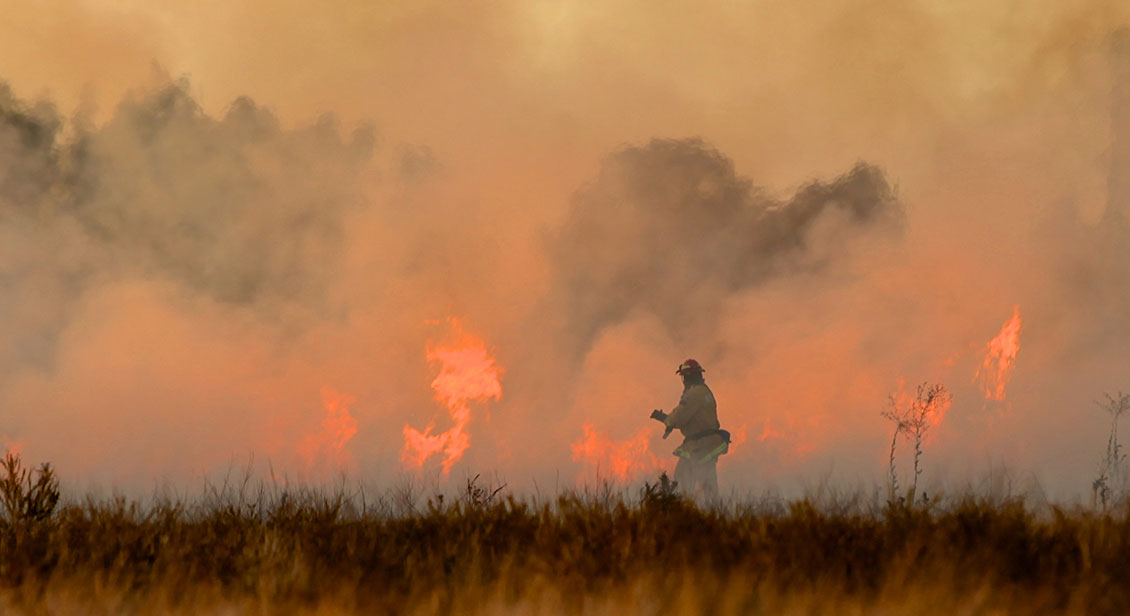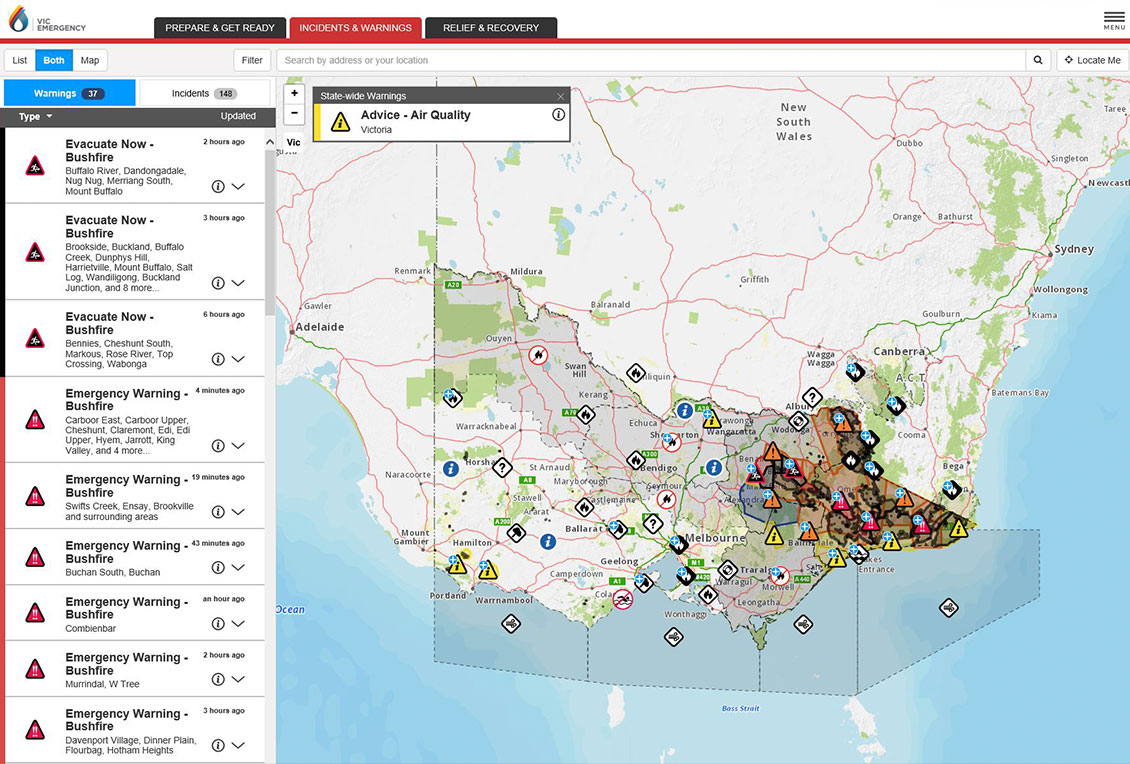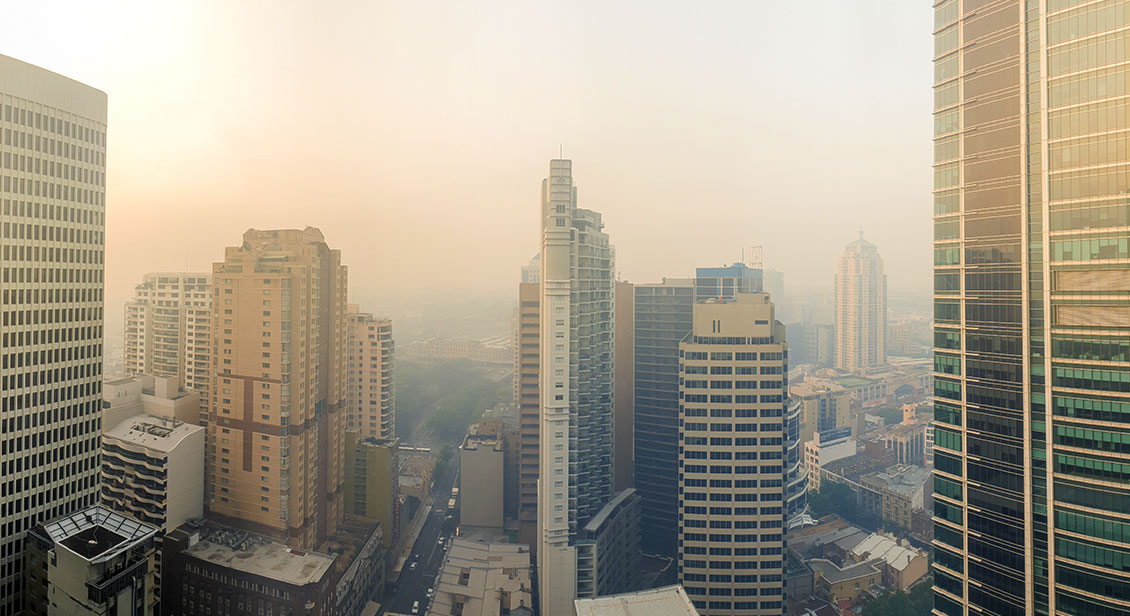General

How to find where the fires are burning across Australia
Although Australia is no stranger to bushfires, this season is nothing like we’ve experienced before. For the past few months we’ve seen the ongoing devastation caused by the fires with the loss of lives — firefighters, home owners, livestock, wildlife — plus hundreds of homes and millions of hectares of land burnt, not to mention the people who are still missing.
The ever-changing conditions mean it’s important to stay up to date with the fire alerts, especially if you live in, or are travelling to, an area that may be at risk. In this guide, we’ll look at how you can find where the fires are burning, any road closures and what the different fire alerts mean. Plus, we’ve included advice on the bush fire scams that have popped up and how to avoid them.
How can I find out where the fires are by State?
There are several ways you can find out where the fires are burning.
Your state or territory’s fire agency website shows a map of where the fires are, along with their corresponding alerts. You’ll also find a bushfire survival plan to help you prepare yourself and your property if you live in an at-risk area.
- NSW Rural Fire Service
- VIC Country Fire Association
- QLD Rural Fire Service
- WA Department of Fire and Emergency Services
- TAS Tasmania Fire Service
- SA South Australian Country Fire Service
- NT Northern Territory Fire and Rescue Service
- ACT ACT Emergency Services Agency
Fires Near Me Australia is an app you can download from the App Store (for Apple devices). It shows bush fire warnings and incident information using data from participating fire agencies in Australia.The app is no longer available on the Google Play Store so check for updates or use other resources to help you find fires near you.
Don’t rely on only one source of information. Check the fire agency websites, ABC Emergency website or tune in to ABC local radio or TV.

Victoria CFA's website shows fires burning in Victoria with their corresponding alert levels. What do the bushfire alert levels mean?
- Advice. A fire has started but there is no immediate danger. Stay up to date and alert in case the situation changes.
- Watch and Act. There is heightened level of threat. Conditions are changing. Start taking action to protect you and your family.
- Emergency Warning. This is the highest alert level. You need to take action immediately as any delay risks your life.
Check for road closures
If you’re travelling by car this season, you can check for road closures through the live traffic websites in your state. For example, if you live in NSW, you can check Live Traffic NSW, or if you live in Victoria, you can check VicTraffic and so on.

Air quality
Smoke from the bushfires has spread far and wide to the cities and even New Zealand. The advice is to stay indoors where possible, especially if you suffer from heart or lung diseases, including asthma. You can check the air quality in your state or territory at the Bureau of Meteorology’s (BOM) Smoke and air quality information page.
Be wary of bushfire scams
Australians, along with people across the globe have been incredibly generous with donations. Unfortunately, there have been a number of reports of scammers preying on people’s generosity by creating fake charities or impersonating people that have been directly impacted by the fires.
The message here is to be alert. Before giving money, check the organisation or campaign is legitimate so your donation reaches the real people or services in need. Here’s a list of what to look out for:
- Do not donate via fundraising pages that don’t guarantee your money will be returned. The popular crowdfunding site, GoFundMe guarantees to provide a refund if a campaign is found to be fake, however it helps to do your own research to avoid the hassle.
- For crowdfunding or fundraiser efforts, check the relationship between the organiser and the recipient. If, for example, an unknown charity is raising money for the Red Cross, it’s probably best to donate directly to the official charity which in this case would be the Red Cross.
- Check the charity or not-for-profit organisation is officially registered. You can do this by searching the Australian Charities and Not-for-profits Commission (ACNC) database. You’ll also find the organisation’s official website, so you can cross-check.
If you come across a bushfire-related scam, please report it to the ACCC on 1300 795 995. If you think you’ve given money to a scammer, contact your bank immediately.